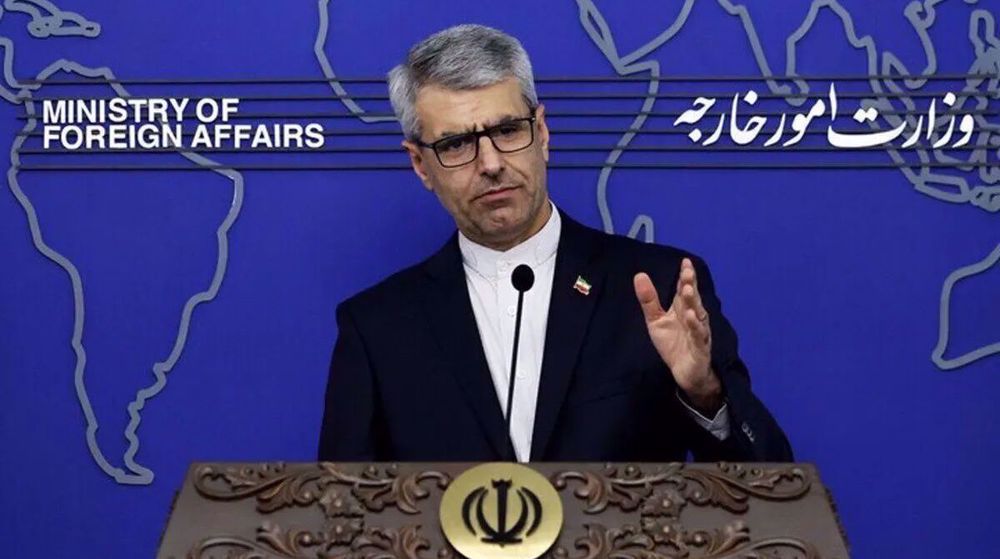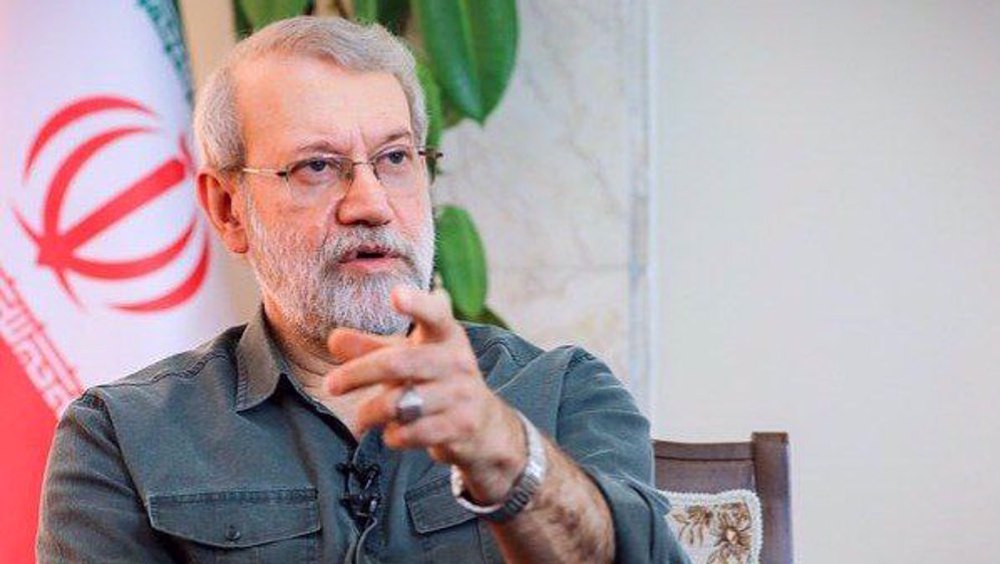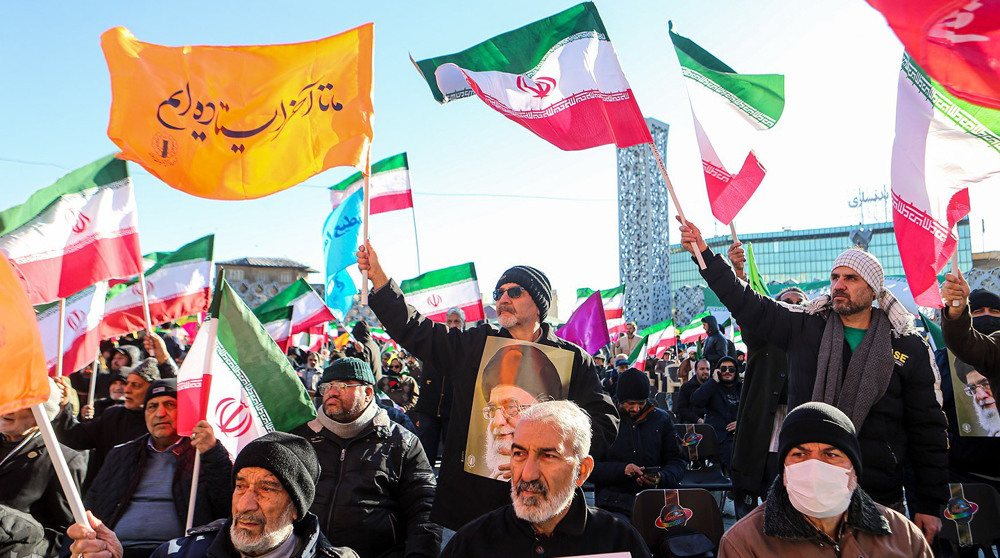Iranophobia on deathbed: President Rouhani
Iranian President Hassan Rouhani says efforts by his administration have resulted in the weakening of Iranophobia, saying attempts to portray Iran as a threat are now falling flat.
President Rouhani made the remarks in a press conference in the capital, Tehran, on Saturday, which marks the third anniversary of his administration taking office.
“Iran is now being known as a peace-seeking country in the world… Iranophobia is in very dire conditions; it is nearing its death despite efforts to resuscitate it,” the president said.
In opening remarks, President Rouhani said his administration, now half way through its term, has sought to avoid causing social gaps and to narrow existing ones.
The administration made efforts to soothe the market, contain the spiraling inflation, and end stagnation, he said.
The economic record of the administration, he said, has been an acceptable one despite such issues as the sharp fall in oil prices – from over 100 dpb to almost 40 dpb – and regional security concerns, which he said affect all countries as the world states are interconnected in terms of how they impact each other.
President Rouhani also said his administration has taken unprecedented steps to address the issue of water scarcity in the country.
Economy takes center stage
In response to a question about how the administration plans to strike a balance between “resistance economy” and the inflow of foreign businesses in order to avoid a situation where Iran is flooded by foreign goods and services, the Iranian president said the administration has been clear that, following the removal of the sanctions, it will want foreign countries to export investment and technology to Iran.
“A section of the [Iranian] market will be theirs and a section of the world market will be ours…; the commodities we need should be provided through [revenues from] non-oil exports; oil [revenues] must be confined to usage for investment,” he said.
Another question posed to the president was about the precise amount of Iranian funds frozen in foreign countries. The Iranian president said there are various figures depending on where the moneys belong to. The portion of frozen funds that belong to the administration is not a large one, he said.
Reversing brain drain
A foreign reporter asked what the administration’s plans are to prevent brain drain and enhance employment in the country in the coming months. President Rouhani highlighted the significance of the young – particularly educated – generation in Iran. He said he believed the young Iranian generation, whether residing in Iran or abroad, are hopeful about the country.
Specifically, he said the administration has taken measures to reverse the brain drain trend through “knowledge-based firms,” under which many experts return to Iran on a monthly basis.
‘No need for Parliament vote on JCPOA’
In response to a question about whether the administration would submit the recent agreement between Iran and the P5+1 to the Parliament (Majlis) for a vote, President Rouhani said that, under the Iranian Constitution, a treaty has to be submitted for approval or disapproval to the Parliament if it has been signed by the president or a representative of his.
That is not the case about the Iran-P5+1 agreement – the Joint Comprehensive Plan of Action (JCPOA), the Iranian president said.
He said the submission of the JCPOA to the Parliament would mean that the president would have to sign the JCPOA, an extra legal commitment that the administration has already avoided.

'No limit to Iran’s defense capabilities'
Asked if the nuclear agreement would limit Iran’s defense capabilities, President Rouhani expressed confidence that the implementation of the agreement would not restrict the Islamic Republic’s defense capabilities.
Iran "will not accept any limits" on its military capacities, he said.
The Iranian president also said that all regional countries are well aware of the fact that Tehran “has not and will not be after nuclear weapons,” stressing that Iran has been seeking better relations with all regional countries.
Iran-Saudi Arabia relations
Responding to a question about Iran-Saudi relations, President Rouhani said that his administration has repeatedly announced “we are after better ties with Saudi Arabia” but certain issues, including the Riyadh regime’s military aggression against Yemen, have impeded the improvement of relations.
He also urged the leaders of regional countries to stop interfering in the domestic affairs of other countries.
‘Shadow of threat’ against Iran removed
Asked about threats by US and Israeli officials that the military option is still on the table against Iran, the Iranian president said the “shadow of threat” against the country does not hang over it anymore.
The excuses that in the eyes of international law could be used for military aggression against Iran have been removed today, he said.
President Rouhani, however, stressed that Iran should stand ready for any potential threats and should boost its deterrence power, arguing that threats always exist though they may have scaled down today.
Iran vows ‘swift, decisive, comprehensive’ response to any aggression after Trump threat
Israeli-approved ‘traders’ allowed to profit from Gaza aid barred from humanitarian NGOs: Report
VIDEO | Beyond the battlefield: General Soleimani’s strategic and diplomatic legacy
VIDEO | Press TV's news headlines
VIDEO | Iran slams Trump’s meddling
VIDEO | Palestinians in West Bank fear more escalation as New Year arrives
VIDEO | Pakistani MPs pay tribute to Gen. Soleimani on his martyrdom anniversary
VIDEO | Artisans in India’s Rajasthan keep Indo-Persian legacy alive










 This makes it easy to access the Press TV website
This makes it easy to access the Press TV website